What are the largest hotel chains in the world? Answer is – The hotel industry is dominated by a few massive international chains. Marriott International consistently tops the list as the world’s largest hotel chain based on both rooms and properties. Other major players include Jin Jiang International, Hilton Worldwide, InterContinental Hotels Group (IHG), Wyndham Hotels & Resorts, and H World Group Limited (formerly Huazhu Hotels Group). These hotel giants have thousands of properties spread across the globe, offering a wide range of accommodation options to suit diverse traveler needs and budgets.
Summary
- The hotel industry landscape is shaped by a handful of large, global hotel chains.
- These chains offer a vast selection of hotels, brands, and accommodation styles.
- The criteria for determining the “largest” can be based on factors like the number of rooms or the number of properties.
- Leading hotel chains leverage their size and reach to offer loyalty programs, consistent service standards, and global recognition.
What are the Largest Hotel Chains in the World?
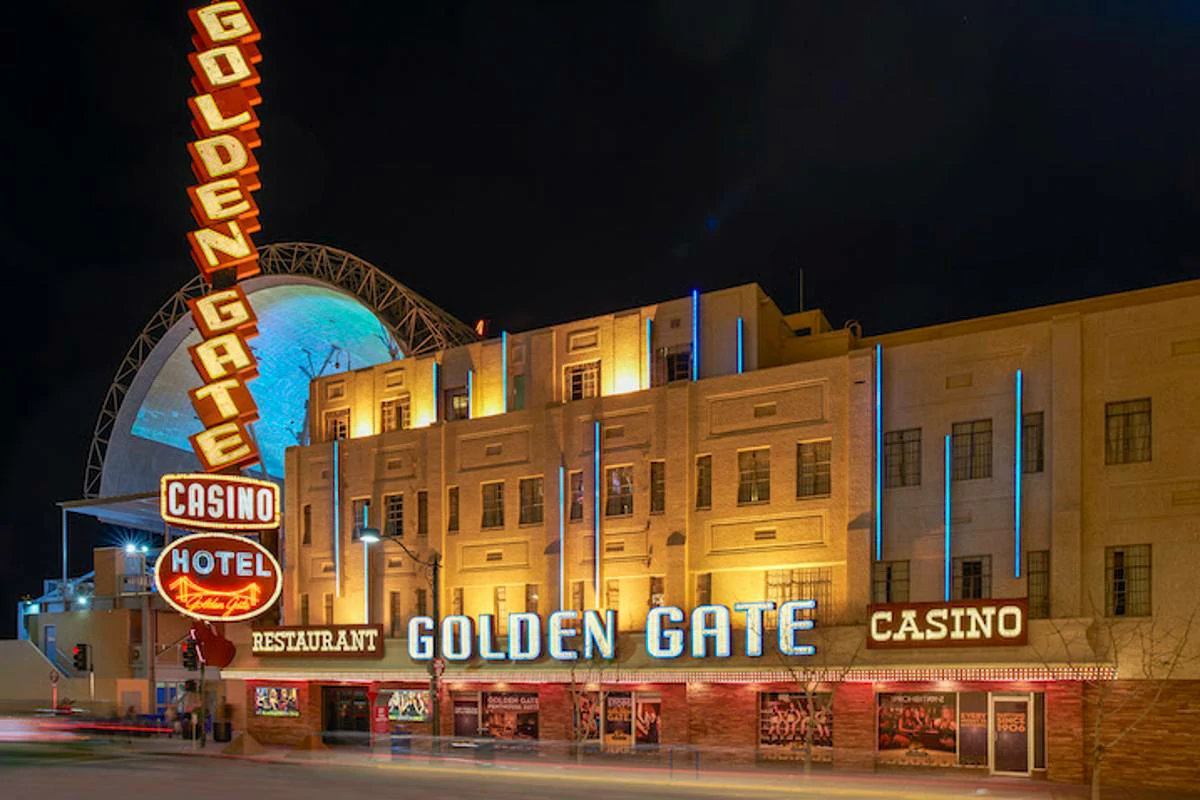
The hotel industry is a cornerstone of the global travel and tourism sector. It provides essential accommodations for business travelers, families on vacation, and solo adventurers alike.
Within this vast landscape, a select group of large hotel chains wield significant influence, shaping the way people experience hospitality around the world.
Brief Overview of the Hotel Industry
The hotel industry encompasses a diverse range of establishments, from budget-friendly motels and hostels to luxurious five-star resorts.
It plays a vital economic role, generating employment, supporting local businesses, and contributing to tax revenues.
According to a report by the World Travel & Tourism Council (WTTC), the travel and tourism sector accounted for 1 in 10 jobs globally and contributed 10.3% of global GDP in 2019.
The industry has faced disruption in recent years, with the rise of online travel agencies (OTAs) like Expedia and Booking.com, and the growth of the sharing economy through platforms like Airbnb. This has forced traditional hotel chains to adapt and innovate to remain competitive.
The Dominance and Importance of Large Hotel Chains
Large hotel chains offer several advantages that have fueled their growth and dominance within the industry:
Global Reach: These chains have properties in numerous countries and destinations, providing travelers with a familiar brand and consistent accommodation standards around the world.
Brand Recognition: Well-established hotel chains enjoy strong brand recognition, built through years of marketing and customer experiences. This brand trust often translates into customer loyalty.
Economies of Scale: Large chains benefit from economies of scale, allowing them to negotiate better rates with suppliers, invest in technology, and develop sophisticated marketing and distribution channels.
Diverse Portfolios: Many large hotel chains manage multiple brands catering to different market segments, from budget-conscious travelers to luxury seekers. This allows them to target a wider customer base.
Sarah Anderson Expert Opinion
“The dominance of large hotel chains is a testament to their ability to deliver consistent quality, brand recognition, and a seamless booking experience across a vast network of properties,” observes Sarah Anderson, a hospitality industry consultant with over 15 years of experience. “This offers significant value to travelers, especially those seeking predictability and reliability.”
The Largest Hotel Chains in the World

1. Marriott International
Background and History
Marriott International’s roots trace back to 1927 when J. Willard Marriott and his wife Alice opened a humble root beer stand in Washington D.C.
This venture evolved into the Hot Shoppes restaurant chain, and in 1957, the company expanded into the hotel business with its first motor hotel, the Twin Bridges Motor Hotel in Arlington, Virginia.
Since then, Marriott has grown through strategic acquisitions and organic expansion to become the world’s largest hotel chain based on rooms.
Portfolio of Brands
Marriott International boasts an impressive collection of over 30 brands, strategically positioned to cater to diverse traveler needs and preferences. Some of their most notable brands include:
- Luxury: The Ritz-Carlton, St. Regis, JW Marriott, W Hotels, EDITION, The Luxury Collection.
- Premium: Marriott Hotels, Sheraton, Delta Hotels, Westin, Le Méridien, Renaissance Hotels, Gaylord Hotels.
- Select: Courtyard, Four Points by Sheraton, SpringHill Suites, Protea Hotels, Fairfield, AC Hotels, Aloft, Moxy.
- Longer Stays: Residence Inn, TownePlace Suites, Element.
Global Footprint
Marriott International has a truly global presence, with over 8,000 properties spread across 139 countries and territories worldwide.
This extensive network offers travelers unparalleled choice and convenience, whether they’re seeking a luxury resort in the Maldives or a business hotel in the heart of Tokyo.
Unique Features and Initiatives
Marriott Bonvoy: Marriott’s loyalty program, Marriott Bonvoy, is widely regarded as one of the best in the industry. It offers members exclusive benefits such as points for stays, room upgrades, mobile check-in, and access to unique experiences.
Focus on Innovation: Marriott has consistently invested in technology and innovation to enhance the guest experience. Examples include mobile key entry, virtual concierge services, and partnerships with tech companies to explore the future of hospitality.
Commitment to Sustainability: Marriott has established ambitious sustainability goals, aiming to reduce its environmental footprint and promote responsible tourism practices.
Dr. Peter Ricci Expert Opinion
“Marriott International’s success lies in its strategic brand portfolio, global reach, and unwavering commitment to guest satisfaction,” notes Dr. Peter Ricci, Director of the Hospitality Management program at Florida Atlantic University. “Their ability to innovate and adapt with changing market trends has been instrumental in maintaining their leadership position.”
2. Jin Jiang International

Background and History
Jin Jiang International (Holdings) Co., Ltd. is a state-owned Chinese hospitality giant with a rich history dating back to the 1930s. The original Jinjiang Hotel in Shanghai, established in 1935, remains an iconic landmark in the city.
Over the decades, Jin Jiang International expanded through domestic growth and strategic acquisitions. A notable milestone was its acquisition of the European Louvre Hotels Group in 2015, significantly boosting its international presence.
Portfolio of Brands
Jin Jiang International operates a diverse portfolio of hotel brands, targeting various market segments within the Chinese market and internationally. Some of its key brands include:
- Luxury: J.J. Grand, Jin Jiang, Yan Garden, Rock Garden
- Upscale: Metropolo, Radisson Blu, Golden Tulip, Campanile
- Midscale: Jin Jiang Inn, Bestay Hotel Express, Vienna Hotels
- Budget: 7 Days Inn
Global Footprint
While historically focused on the Chinese market, Jin Jiang International has rapidly expanded its global presence in recent years.
The company boasts a network of over 10,000 hotels worldwide, with properties located in major cities across Asia, Europe, North America, and Oceania.
Unique Features and Initiatives
Focus on the Chinese Traveler: Jin Jiang International caters to the preferences of Chinese travelers, both within China and abroad. This includes offering familiar amenities, Chinese cuisine options, and Mandarin-speaking staff.
Strategic Partnerships: The company has formed strategic partnerships with global hospitality companies like Accor, facilitating knowledge sharing and market expansion.
Technology and Innovation: Jin Jiang International has invested in technology, developing its “WeHotel” global hotel platform to streamline bookings and enhance the guest experience.
Membership Program: The company’s loyalty program offers a range of benefits and rewards to frequent guests.
Lin Wang Expert Opinion
“Jin Jiang International’s rise is a reflection of China’s growing economic power and the increasing outbound travel of its citizens,” says Lin Wang, a Beijing-based travel and tourism analyst. “Their strategic focus on catering to Chinese travelers while expanding globally has fueled their success.”
3. Hilton Worldwide

Background and History
Conrad Hilton founded the Hilton Hotels chain in 1919 with the purchase of his first hotel, the Mobley Hotel in Cisco, Texas.
Driven by a vision to create a global hospitality network, Hilton’s ambition led to the opening of the first hotel outside of the U.S in 1949, the Caribe Hilton in Puerto Rico.
Hilton Hotels became the first transcontinental hotel chain in the United States. Throughout the decades, the company expanded through both organic growth and the acquisition of other hotel brands.
Portfolio of Brands
Hilton Worldwide encompasses a diverse collection of brands designed to meet the needs of various travelers. Some of their most well-known brands include:
- Luxury: Waldorf Astoria Hotels & Resorts, Conrad Hotels & Resorts, LXR Hotels & Resorts
- Full-Service: Hilton Hotels & Resorts, Canopy by Hilton, Signia by Hilton, Curio Collection by Hilton, DoubleTree by Hilton
- Focused-Service: Hampton by Hilton, Tru by Hilton, Homewood Suites by Hilton, Home2 Suites by Hilton
- Timeshare: Hilton Grand Vacations
Global Footprint
Hilton boasts an impressive global network with over 7,000 properties across 122 countries and territories.
This extensive presence offers guests a wide array of choices in prime locations around the world.
Unique Features and Initiatives
Hilton Honors: The Hilton Honors loyalty program is recognized as one of the best in the industry. Members enjoy perks such as points for stays, exclusive experiences, and the ability to use points for free nights.
Technology Focus: Hilton has been a pioneer in adopting technology to improve the guest experience. Examples include digital check-in, digital keys, and the ability to select specific rooms through the Hilton Honors app.
Commitment to Community: Hilton has a strong focus on corporate responsibility, with initiatives focused on youth opportunity, disaster relief, and environmental sustainability.
Emily Weiss Expert Opinion
“Hilton Worldwide has maintained its position as a top hotel chain through a combination of brand heritage, guest-centric innovation, and a commitment to responsible hospitality practices,” comments Emily Weiss, a hospitality consultant and former hotel executive. “Their ability to adapt to changing guest preferences has kept them relevant throughout a century of operation.”
4. InterContinental Hotels Group (IHG)
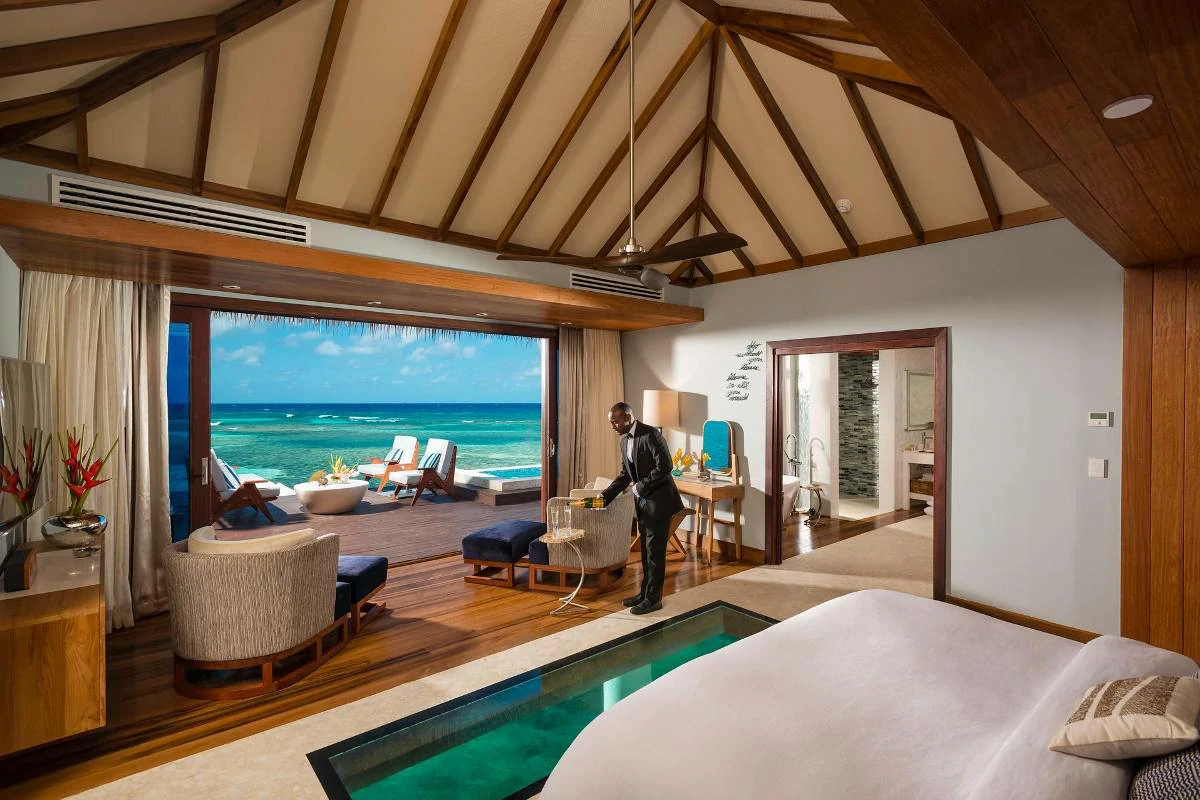
Background and History
IHG’s origins trace back to 1777, when William Bass established a brewery in Burton-upon-Trent, England. The Bass Brewery expanded into the hotel business, with the iconic Holiday Inn brand born in the United States in 1952.
Over subsequent decades, the company grew and diversified, acquiring other hotel brands along the way. The InterContinental Hotels Group, as it is known today, was formally established in 2003.
Portfolio of Brands
IHG manages a diverse portfolio of hotel brands designed to appeal to a wide spectrum of travelers, with a focus on strong brand recognition:
- Luxury: InterContinental Hotels & Resorts, Six Senses Hotels Resorts Spas, Regent Hotels & Resorts, Kimpton Hotels & Restaurants.
- Upscale: voco Hotels, Hotel Indigo, Crowne Plaza Hotels & Resorts, EVEN Hotels.
- Midscale: Holiday Inn, Holiday Inn Express, avid Hotels
- Suites: Staybridge Suites, Atwell Suites, Candlewood Suites.
Global Footprint
IHG maintains a significant global presence with over 6,000 hotels in more than 100 countries. This network gives guests a variety of accommodation options worldwide, from bustling urban centers to idyllic resort destinations.
Unique Features and Initiatives
IHG One Rewards: The IHG One Rewards loyalty program offers members points for stays, room upgrades, and other benefits.
Focus on Wellness: Brands like EVEN Hotels cater to health-conscious travelers with in-room fitness equipment and healthy dining options.
Commitment to Sustainability: IHG has set ambitious sustainability targets, as outlined in their ‘Journey to Tomorrow’ responsible business plan.
Innovation through Partnerships: IHG collaborates with technology companies to explore innovative solutions that elevate the guest experience.
Susan Gordon Expert Opinion
“IHG’s strength lies in its well-recognized, globally distributed brands that cater to a wide range of guest needs,” notes Professor Susan Gordon, Director of the Hospitality and Tourism Management Program at Cornell University. “Their focus on building brand loyalty and continuous innovation has contributed to their enduring success.”
5. Wyndham Hotels & Resorts

Background and History
Wyndham Hotels & Resorts traces its roots back to 1981, when it was founded in Dallas, Texas. The company experienced significant growth through a strategy of franchising and acquisitions, becoming a major player in the North American hospitality market.
In 2018, Wyndham Worldwide Corporation spun off its hotel division, creating Wyndham Hotels & Resorts as a standalone, publicly-traded company.
Portfolio of Brands
Wyndham Hotels & Resorts boasts the largest number of hotel brands among the major chains, with over 20 brands designed to appeal to diverse market segments. Some of its most recognizable brands include:
- Upscale: Wyndham Grand, Dolce Hotels and Resorts by Wyndham, Trademark Collection by Wyndham.
- Midscale: Wyndham, Wingate by Wyndham, Ramada by Wyndham, La Quinta Inns & Suites, Baymont by Wyndham.
- Economy: Days Inn by Wyndham, Super 8 by Wyndham, Howard Johnson by Wyndham, Travelodge by Wyndham, Microtel Inn & Suites by Wyndham.
- Extended Stay: Hawthorn Suites by Wyndham.
Global Footprint
Wyndham Hotels & Resorts is the world’s largest hotel franchisor based on the number of properties, with approximately 9,000 hotels across nearly 95 countries.
The company has a particularly strong presence in the United States, with a focus on economy and midscale hotels.
Unique Features and Initiatives
Wyndham Rewards: Wyndham’s loyalty program, Wyndham Rewards, is considered one of the most straightforward and generous in the industry. Members earn points for stays that can be redeemed for free nights with no blackout dates.
Focus on the Everyday Traveler: Wyndham positions itself as catering to the everyday traveler, emphasizing value, convenience, and a wide range of locations.
Franchise-Focused Model: Wyndham primarily operates as a hotel franchisor, partnering with property owners who manage hotels under the company’s various brands. This model allows for rapid expansion and flexibility.
Environmental Programs: Wyndham has implemented sustainability initiatives, such as its Wyndham Green program, aimed at reducing its environmental impact.
Mark Hamister Expert Opinion
“Wyndham Hotels & Resorts has carved out a distinct niche in the hospitality industry by focusing on the needs of value-conscious travelers and leveraging a franchise-driven model” observes Mark Hamister, chairman of Hamister Hospitality Group, a hotel development and management company. “Their extensive network across a range of price points makes them a popular choice for both leisure and business travelers”
6. H World Group Limited

Background and History
H World Group Limited, formerly known as Huazhu Hotels Group, was founded in 2005 by Ji Qi in Shanghai, China. The company experienced remarkable growth in the domestic Chinese market, focusing initially on the economy and midscale hotel segments.
H World Group made history in 2010 when it became the first Chinese hotel company to list on the NASDAQ stock exchange. In recent years, it has expanded its reach internationally and boasts a growing global footprint.
Portfolio of Brands
H World Group manages a diverse portfolio of brands designed to cater to various traveler preferences within the Chinese market and beyond. Its key brands include:
- Upscale & Luxury: JI Hotel, Orange Hotel, Crystal Orange Hotel, Manxin Hotel, Madison Hotel, Joya Hotel
- Midscale: HanTing Hotel, Elan Hotel, Starway Hotel
- Economy: Hi Inn, CitiGO Hotel
- International: Steigenberger Hotels & Resorts, MAXX by Steigenberger, Jaz in the City, IntercityHotel, Zleep Hotels.
Global Footprint
While its roots are firmly planted in China, H World Group has been steadily expanding its presence across the globe.
As of 2023, the company operates over 9,000 hotels in 18 countries. Europe is a key growth market, boosted by the acquisition of Deutsche Hospitality in 2019.
Unique Features and Initiatives
Focus on the Chinese Traveler: H World Group understands the unique needs and preferences of Chinese travelers, offering familiar amenities and culturally sensitive services across its properties.
Technology-Driven Approach: The company has heavily invested in technology to streamline operations, enhance the guest experience, and expand distribution channels.
Membership Program: H World Group’s loyalty program rewards frequent guests with benefits and perks across its hotel brands.
Strategic Partnerships: H World Group has forged partnerships with global companies, such as Accor in China, to strengthen its market position and expand its reach.
Dr. Zheng Liang Expert Opinion
“H World Group Limited has been a disruptive force in the Chinese hospitality market and is now making significant strides globally,” states Dr. Zheng Liang, Professor of Hospitality Management at Shanghai Jiao Tong University. “Their combination of tech-savvy operations and a deep understanding of Chinese travelers sets them up for continued success.”
7. Accor
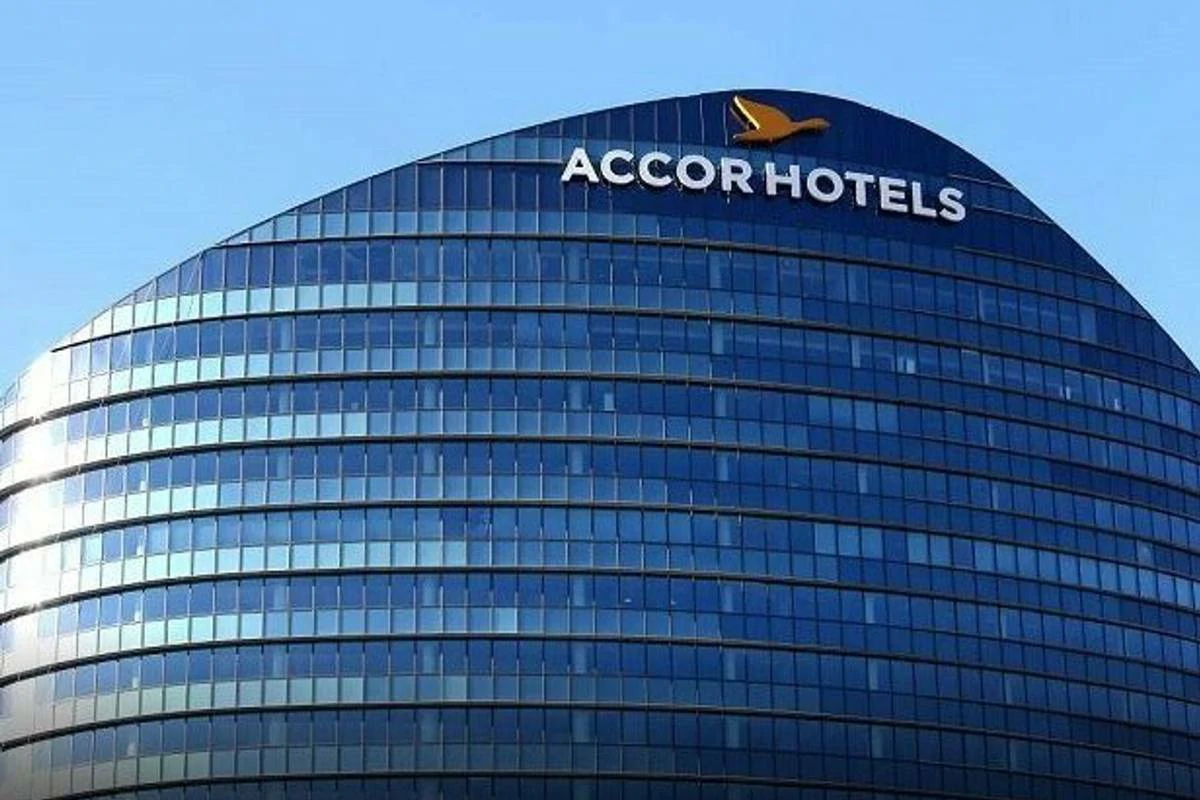
Background and History
Accor’s story began in 1967 when Paul Dubrule and Gérard Pélisson founded the Société d’Investissement et d’Exploitation Hôtelière (SIEH) group in France.
Their first hotel was a Novotel in Lille, and the company expanded through both new hotel developments and strategic acquisitions.
A notable milestone was the acquisition of Sofitel in 1980, marking Accor’s entry into the luxury hotel segment. The company grew into a global hospitality leader, rebranding to Accor in 1983.
Portfolio of Brands
Accor boasts one of the most diverse brand portfolios in the industry, encompassing a wide range of styles and price points. Some of its most recognized brands include:
- Luxury: Raffles, Orient Express, Fairmont, Sofitel, Banyan Tree, Rixos
- Upscale: Pullman, MGallery, Mövenpick, Swissôtel, Grand Mercure
- Midscale: Novotel, Mercure, Mama Shelter, Adagio
- Economy: ibis, ibis Styles, ibis budget
Global Footprint
Accor has a truly global presence, with over 5,584 hotels and resorts in more than 110 countries.
The company has a strong presence in Europe, particularly in its home country of France, as well as significant growth in the Asia Pacific region.
Unique Features and Initiatives
ALL – Accor Live Limitless: Accor’s loyalty program, ALL – Accor Live Limitless, offers members unique experiences, exclusive benefits, and points accumulation across all hotel brands.
Lifestyle Focus: Accor has a strong focus on lifestyle brands, targeting design-conscious travelers seeking unique, localized experiences. Examples include Mama Shelter and 25 Hours Hotels.
Partnerships and Acquisitions: Accor utilizes strategic partnerships and acquisitions to expand its brand portfolio and market reach. Recent examples include collaborations with Ennismore and sbe Entertainment Group.
Commitment to Sustainability: Accor actively promotes sustainable practices across its operations through its Planet 21 program.
Vanessa Perez Expert Opinion
“Accor’s commitment to innovation, diverse brand offerings, and strategic expansion have solidified its position as a leader in the global hospitality industry,” observes Vanessa Perez, a hospitality consultant based in Paris. “Their ability to cater to a wide range of travelers, from luxury seekers to budget-minded adventurers, has been key to their success.”
8. Choice Hotels International
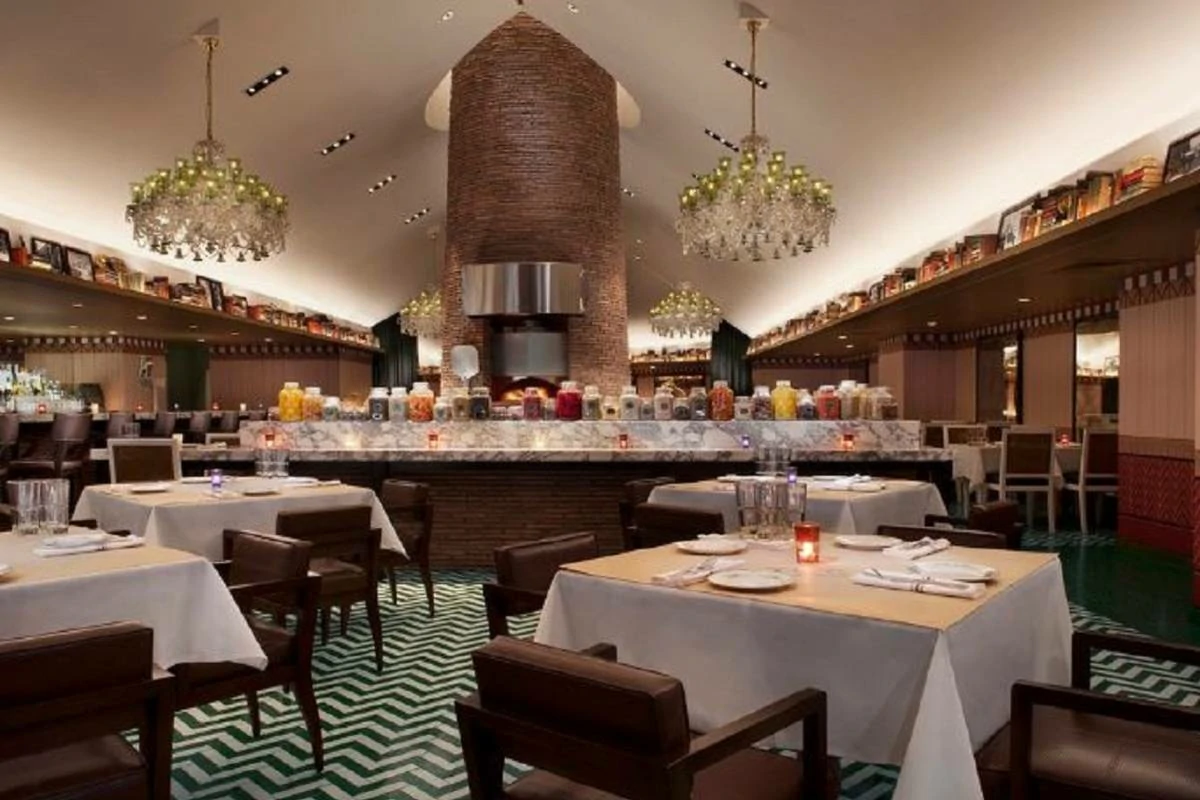
Background and History
Choice Hotels International traces its beginnings to 1939 when a group of Florida motel owners came together to form Quality Courts United, a referral network designed to drive business to their properties during a time of economic downturn.
Over the decades, the company expanded through franchising and acquired other hotel brands. The name “Choice Hotels International” was adopted in 1990 to reflect its growing portfolio.
Portfolio of Brands
Choice Hotels caters to a wide range of travelers, with a strong focus on the midscale and economy segments. Some of its most well-known brands include:
- Upscale: Cambria Hotels, The Ascend Hotel Collection
- Midscale: Comfort Inn, Comfort Suites, Sleep Inn, Quality Inn, Clarion
- Economy: Econo Lodge, Rodeway Inn
- Extended Stay: MainStay Suites, Suburban Extended Stay, WoodSpring Suites
Global Footprint
Choice Hotels has a primarily North American focus with a substantial presence in the United States and Canada.
Additionally, it has expanded its reach to over 40 countries and territories worldwide. This global network provides travelers with comfortable and affordable options in various destinations.
Unique Features and Initiatives
Choice Privileges: Choice Hotels’ loyalty program, Choice Privileges, rewards members with points for stays that can be redeemed for free nights, gift cards, and other perks.
Commitment to Franchisees: Choice Hotels maintains a strong relationship with its franchisees, providing support, tools, and resources to help them succeed.
Focus on Technology: The company invests in technology to enhance the booking process, streamline operations, and improve the guest experience across its brands.
Sustainability Initiatives: Choice Hotels emphasizes sustainable practices through programs aimed at reducing energy consumption, water usage, and waste.
Dr. Robert Mandelbaum Expert Opinion
“Choice Hotels International has carved out a distinct niche in the hospitality industry by focusing on the midscale and economy segments while offering a diverse portfolio of brands designed to meet the needs of a wide range of travelers,” notes Dr. Robert Mandelbaum, Director of Research Information Services at CBRE Hotels’ Americas Research.
9. BTH Hotels Group

Background and History
BTH Hotels Group, also known as Homeinns Hotel Group or Beijing Tourism Group, is a leading Chinese hotel chain with a significant focus on midscale and upscale business hotels.
Founded in 1996, its initial brand Home Inn rapidly expanded across China. BTH diversified its portfolio through acquisitions and strategic partnerships, and currently manages an extensive network of hotels, both domestically and internationally.
Portfolio of Brands
BTH Hotels Group operates a collection of brands spanning various market segments to cater to diverse guest needs. Some of its notable brands include:
- Upscale: JI Hotel, Yitel, Crystal Orange Hotel
- Midscale: Home Inn
- Lifestyle: Blossom House, Floral Hotel, Leju Hotel
- International: Louvre Hotels Group (majority stake, including Campanile, Kyriad, Golden Tulip)
Global Footprint
While predominantly focused on the vast Chinese market, BTH Hotels Group is expanding its global footprint, particularly through its partnership with Louvre Hotels Group.
As of 2023, the company manages over 8,000 hotels across China and has a growing international presence in France, Germany, and Southeast Asia.
Unique Features and Initiatives
Understanding of the Chinese Traveler: BTH Hotels Group’s deep roots in China give them a strong understanding of the specific preferences and needs of Chinese travelers, both domestically and abroad.
Commitment to Technology and Innovation: The company invests in technology to streamline operations, improve the guest experience, and expand distribution channels.
Extensive Domestic Network: BTH Hotels Group’s vast network of hotels across China offers unparalleled convenience and choice for travelers within the country.
Strategic Partnerships: BTH Hotels Group utilizes strategic partnerships with international hospitality companies to expand market reach and strengthen brand portfolios.
Wang Hui Expert Opinion
“BTH Hotels Group is a formidable force in the Chinese hospitality industry, and their growing international presence signifies China’s increasing influence on global tourism,” states Professor Wang Hui, Director of the Tourism Research Center at Sun Yat-sen University in Guangzhou, China. “Their understanding of the Chinese market and innovative approach to hotel operations will fuel their continued growth.”
10. OYO Rooms
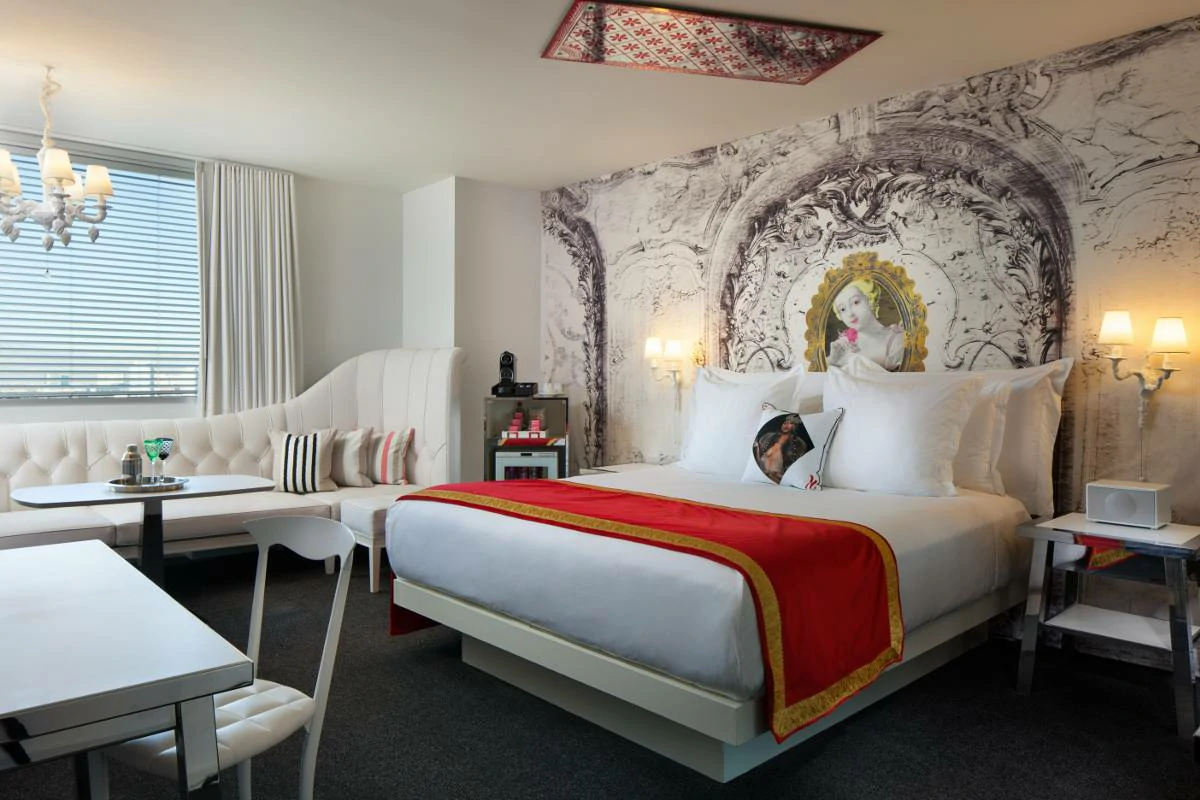
Background and History
OYO Rooms, often stylized as OYO, was founded in India in 2013 by Ritesh Agarwal when he was just 19 years old. Starting with a single hotel in Gurugram, Agarwal observed wide disparities in the quality and affordability of budget accommodations in India.
OYO’s model aimed to fill this gap by partnering with small, independent hotels, helping them standardize amenities, improve service levels, and tap into OYO’s technology-driven booking platform. The company experienced meteoric growth.
Portfolio of Brands
OYO has evolved to offer a range of accommodation options catering to diverse budgets and preferences. Its brands include:
- OYO Townhouse: Targeted at millennial travelers seeking a stylish and social hotel experience.
- OYO Home: Managed homes and apartments ideal for families and long-stay guests.
- SilverKey: Upscale serviced apartments focused on business travelers.
- Collection O: Curated selection of premium hotels.
- Capital O: Mid-market hotels offering comfortable stays at value-driven prices.
Global Footprint
OYO’s unique model fueled its rapid expansion across India and then into international markets.
As of 2023, OYO boasts a network of over 43,000 hotels and 1 million rooms in over 800 cities spanning 80 countries, including India, China, Southeast Asia, Europe, and the United States.
Unique Features and Initiatives
Asset-Light Model: OYO primarily operates on a franchise model, partnering with existing hotels rather than owning properties outright. This enables rapid scalability and flexibility.
Technology-Driven Approach: OYO’s proprietary technology platform simplifies bookings, manages inventory, and provides data-driven insights to hotel partners.
Focus on Budget Travelers: OYO maintains a focus on providing affordable, standardized, and tech-enabled accommodations for a wide range of travelers.
Aggressive Expansion Strategy: OYO’s rapid growth has been fueled by its aggressive expansion into new markets and its willingness to experiment with new models.
Arun Kumar Expert Opinion
“OYO Rooms has been a disruptive force in the hospitality industry, challenging traditional hotel models and democratizing travel through affordable and tech-enabled accommodations,” observes Arun Kumar, a travel industry analyst based in New Delhi. “Their asset-light approach and focus on standardization have been key to their success.”
11. Huazhu Hotels Group
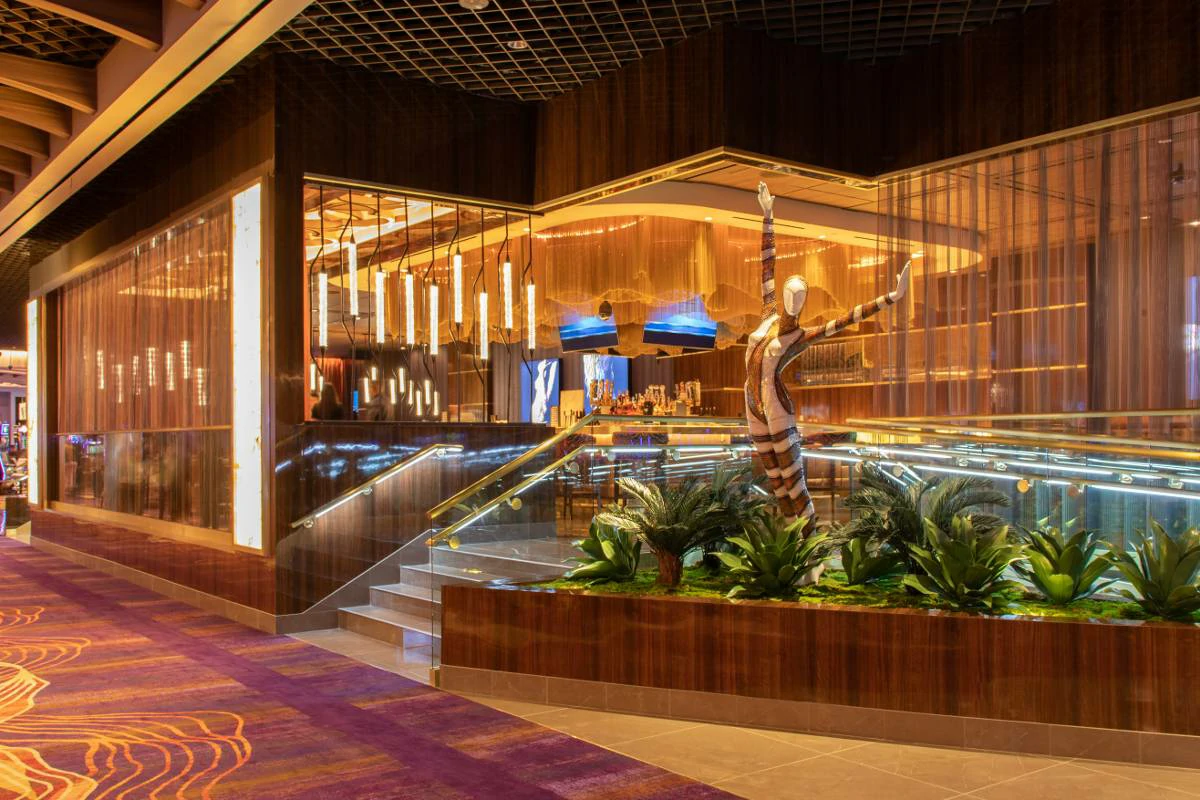
Background and History
Huazhu Hotels Group was founded in 2005 by Ji Qi in Shanghai, China, entering a rapidly growing domestic hospitality market.
The company quickly became known for its focus on the economy and midscale segments, catering to the increasing population of budget-conscious domestic travelers across China.
Huazhu achieved impressive growth rates, and listed on the NASDAQ stock exchange in 2010. In recent years, it began expanding its portfolio and global influence.
Portfolio of Brands
Huazhu Hotels Group initially built its domestic reputation with its core brands:
- Economy: Hi Inn, Elan Hotel, and HanTing Hotel
- Midscale: Starway Hotel, Joya Hotel, and Manxin Hotels.
As the company grew, it diversified its portfolio through acquisitions and new brand development:
- Upscale & Luxury: Orange Hotel, Crystal Orange Hotel, and Blossom House
- International Partnerships: Huazhu formed strategic partnerships with global hospitality giants like Accor and Deutsche Hospitality.
Global Footprint
While its primary focus remained the vast Chinese market, Huazhu Hotels Group steadily expanded its global footprint through acquisitions and development.
The acquisition of Deutsche Hospitality in 2019, adding brands like Steigenberger and IntercityHotel, significantly increased its presence in Europe.
Unique Features and Initiatives
Strong Domestic Growth: Huazhu’s early success was built on its deep understanding of Chinese travelers and its ability to meet the demand for affordable, quality accommodations within the country.
Technology-Driven Approach: Huazhu invested in developing a robust technology platform to streamline operations, improve booking efficiency, and power its loyalty program.
Rapid Expansion Model: The company’s focus on a franchise and management model allowed it to scale at a rapid pace within the Chinese market.
Strategic Partnerships: Huazhu actively leveraged partnerships with international companies to gain access to new markets and strengthen its brand portfolio.
Dr. Zheng Liang Expert Opinion
“Huazhu Hotels Group was a major disruptor in the Chinese hospitality industry and played a crucial role in developing a more standardized and accessible hotel market for domestic travelers,” states Dr. Zheng Liang, Professor of Hospitality Management at Shanghai Jiao Tong University. “Their growth trajectory and international expansion efforts were remarkable.”
12. Radisson Hotel Group

Background and History
Radisson Hotel Group’s roots stretch back to 1909, with the opening of the Radisson Hotel in Minneapolis, Minnesota. Founded by Edna Dickerson, the hotel became iconic for its commitment to personalized service.
In 1962, the Radisson brand was acquired by the Carlson Companies, a privately held corporation with diverse interests in travel and hospitality.
Over subsequent decades, Carlson drove the international expansion of Radisson Hotels while adding other hospitality brands to its portfolio.
Portfolio of Brands
Radisson Hotel Group operates a collection of brands designed to cater to various market segments and traveler preferences. Some of its most recognized brands include:
- Upscale: Radisson Blu, Radisson RED, Radisson Individuals, Park Plaza
- Upper Midscale: Radisson, Country Inn & Suites by Radisson, Park Inn by Radisson
- Premium Extended Stay: Prizeotel
Global Footprint
Radisson Hotel Group maintains a significant presence worldwide with over 1,700 hotels in more than 120 countries and territories.
The brand has a strong presence in Europe, the Middle East, Africa, and the Asia Pacific region. In 2018, Radisson Hotel Group became part of the Jin Jiang International family of hotel brands.
Unique Features and Initiatives
Radisson Rewards: The Radisson Rewards loyalty program offers members exclusive benefits, points accumulation for stays, and the ability to redeem points for free nights and other rewards.
Design-Forward Hotels: Brands like Radisson RED and Radisson Collection boast a unique focus on contemporary design and stylish ambiance.
Commitment to “Yes I Can” Service Philosophy: Radisson emphasizes a positive, guest-centric service culture across all its brands.
Sustainability Initiatives: Radisson Hotel Group is actively engaged in responsible business practices with defined sustainability targets.
Susan Tanzman Expert Opinion
“Radisson Hotel Group embodies a legacy hospitality brand that has successfully evolved to meet changing traveler expectations while maintaining a focus on guest satisfaction,” observes Susan Tanzman, Senior Lecturer in the School of Hotel Administration at Cornell University. “Their diverse brand portfolio and strong global presence contribute to their enduring success.”
13. Best Western Hotels & Resorts

Background and History
Best Western’s origins date back to 1946 when M.K. Guertin, a hotelier with 23 years of experience, created an informal referral network among hotels in the western United States.
This network aimed to drive business during a postwar travel boom. The name “Best Western Motels” was adopted, highlighting the company’s focus on quality accommodations.
Best Western has grown to become one of the largest hotel chains in the world and maintains a unique cooperative structure.
Portfolio of Brands
Best Western Hotels & Resorts has expanded its portfolio to offer a wider range of accommodation options catering to diverse market segments. Their brands include:
- Traditional: Best Western, Best Western Plus, Best Western Premier
- Boutique: Vīb, Glō, Sadie Hotel, Aiden Hotel
- Extended Stay: Executive Residency by Best Western
- Soft Brands: BW Signature Collection, BW Premier Collection, SureStay Hotel Group
Global Footprint
Best Western maintains a truly global presence with over 4,500 hotels across more than 100 countries and territories worldwide.
The brand has a particularly strong presence in North America, while also boasting a significant network across Europe and Asia.
Unique Features and Initiatives
Cooperative Model: Best Western is owned and operated by its member hotels, creating a sense of community and shared investment in the brand’s success.
Best Western Rewards: One of the longest-running hotel loyalty programs, offering members points for stays, exclusive discounts, and the ability to redeem points for free nights.
Focus on Value and Consistency: Best Western emphasizes delivering a reliable, value-driven guest experience across its diverse properties.
Commitment to Technology: The company continues to invest in technology to improve the booking process, guest experience, and hotel operations.
Dr. Peter Ricci Expert Opinion
“Best Western Hotels & Resorts is a testament to the power of a cooperative model in the hotel industry,” remarks Dr. Peter Ricci, Director of the Hospitality Management program at Florida Atlantic University. “Their focus on delivering value and consistency to guests has contributed to their longevity and global reach.”
The Largest Hotel Chains in the World
| Hotel Chain | Company Culture and Values | Target Market and Demographics | Loyalty Programs and Benefits | Sustainability and Corporate Responsibility | Innovations and Trends |
|---|---|---|---|---|---|
| Marriott International | Guest-centric service Commitment to inclusion and diversity Focus on innovation |
Business and leisure travelers Diverse price points from luxury to select service |
Marriott Bonvoy Points for stays, room upgrades, unique experiences Ambitious sustainability goals (net-zero by 2050) Community engagement |
Mobile check-in and keyless entry Partnerships with tech companies Emphasis on well-being and personalized experiences |
|
| Jin Jiang International | Emphasis on Chinese hospitality Commitment to growth Employee development |
Domestic & international travelers Focus on Chinese outbound travel market |
Multiple programs based on brands Points, perks, exclusive offers |
Environmental initiatives, including waste reduction and energy conservation Support for local communities |
Technology adaptation for Chinese travelers Growing global partnerships Expansion into new markets and lifestyle brands |
| Hilton Worldwide | Hospitality heritage Strong brand recognition Focus on responsible travel |
Wide range of travelers Emphasis on business and upscale clientele |
Hilton Honors Points, room upgrades, digital perks, experiences |
Reducing carbon footprint Water conservation programs Global volunteering initiatives |
Digital check-in and room keys Technology-driven personalization Voice control integration in select hotels |
| InterContinental Hotels Group (IHG) | Emphasis on well-known brands Guest loyalty Commitment to service excellence |
Global travelers Diverse segments from luxury to midscale |
IHG One Rewards Points, status tiers, personalized rewards |
Environmental commitment (Journey to Tomorrow program) Ethical sourcing Diversity and inclusion initiatives |
Partnerships for innovation Wellness-focused hotel experiences Sustainable hotel design and operations |
| Wyndham Hotels & Resorts | Value and accessibility Focus on the everyday traveler Franchise-driven model |
Economy and midscale travelers Emphasis on family and leisure travel |
Wyndham Rewards Straightforward points system, no blackout dates |
Green initiatives (Wyndham Green) Charitable partnerships |
Diverse brand portfolio for various traveler needs Emphasis on practical, functional amenities Expansion in emerging markets |
| H World Group Limited | Understanding of Chinese travelers Technology-driven operations Strategic growth |
Domestic Chinese travelers Expansion into international markets (Europe, Southeast Asia) |
Multiple programs based on brands Points, exclusive benefits, personalized offers |
Investment in sustainable practices Efforts to reduce environmental impact |
Focus on mobile and contactless experiences Data-driven personalization Growth in luxury and lifestyle segments |
| Accor | Diverse brand portfolio Emphasis on design and lifestyle Commitment to innovation |
Wide range of travelers From luxury to economy segments |
ALL – Accor Live Limitless Points, experiences, status tiers, partnerships |
Ambitious sustainability targets (net-zero by 2050) Support for cultural heritage Diversity and inclusion programs |
Integration of technology for seamless experiences Growth of lifestyle brands targeting younger travelers Experiential travel offerings |
| Choice Hotels International | Commitment to franchisees Focus on providing value Emphasis on guest satisfaction |
Midscale and economy travelers Families and road trippers Business travelers seeking affordable accommodations |
Choice Privileges Points for stays, gift cards, merchandise |
Sustainable practices (Choice Hotels Eco-Program) Support for local communities |
Technology-driven booking and guest experience Emphasis on convenient locations Expanding portfolio of extended stay brands |
| BTH Hotels Group | Deep understanding of the Chinese travel market Focus on technology and efficiency Commitment to growth |
Predominantly domestic Chinese travelers Expanding focus on international business and leisure travel |
Multiple loyalty programs based on brands Points, exclusive benefits, personalized offers |
Investment in sustainable practices Efforts to reduce environmental impact Support for local cultural initiatives |
Integration of mobile and contactless experiences Strategic partnerships for domestic and international expansion Growth in midscale and upscale segments |
| OYO Rooms | Entrepreneurial spirit Emphasis on technology and standardization Disruptive business model |
Budget-conscious travelers Young travelers seeking affordable and accessible accommodations |
OYO Wizard (for members) Discounts, early check-in and late check-out, priority support |
Commitment to minimizing environmental impact Social responsibility initiatives for local skill development |
Asset-light, franchise-driven expansion model Data-driven pricing and inventory management technology Focus on growth within emerging markets |
| Radisson Hotel Group | Legacy of personalized service Design-forward hotel experiences Strong brand recognition |
Diverse range from upscale to midscale travelers Business and group travel |
Radisson Rewards Points, room upgrades, exclusive member benefits |
Ambitious sustainability roadmap Community engagement initiatives Focus on waste reduction and responsible sourcing |
Partnerships for innovative technology solutions Emphasis on well-being amenities and services Contemporary design and lifestyle experiences |
| Best Western Hotels & Resorts | Cooperative, member-owned model Emphasis on delivering value and consistency Focus on community involvement |
Value-driven leisure and business travelers Families seeking trusted and reliable accommodations |
Best Western Rewards Longstanding program offering points, discounts, and exclusive member benefits |
Commitment to green initiatives Charitable partnerships and community support programs |
Investment in technology for streamlined bookings and operations Growth in boutique and lifestyle brands Emphasis on localized guest experiences |
Factors Determining a “Large” Hotel Chain
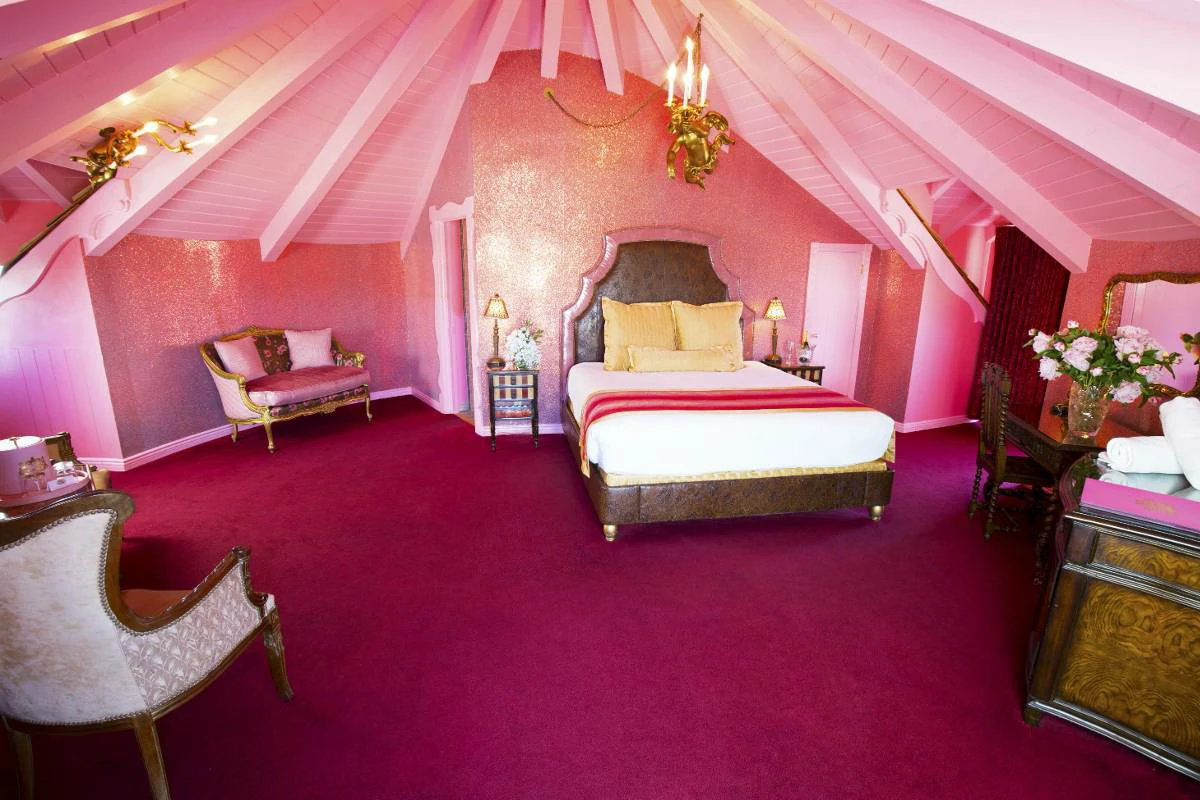
1. Number of Rooms
One of the most fundamental metrics for determining a hotel chain’s scale is the total number of rooms it manages across its entire portfolio.
Large hotel chains often have tens of thousands, even hundreds of thousands of rooms under their management. This allows them to accommodate a massive number of guests simultaneously and generate significant revenue.
For example, Marriott International boasts over 1.5 million rooms worldwide, making it the largest hotel chain globally based on this metric.
2. Number of Properties
The number of individual hotels or properties a chain operates is another crucial indicator of its size and footprint.
Large hotel chains typically have a network of hundreds or even thousands of properties spread across various locations. This provides travelers with a wide range of choices in terms of destination, price point, and brand experience.
Wyndham Hotels & Resorts leads the industry in terms of the number of properties, with approximately 9,000 hotels globally.
3. Market Value / Revenue
A hotel chain’s market value or annual revenue reflects its financial strength and overall influence within the industry.
Large hotel chains generate billions of dollars in revenue annually through accommodation bookings, food and beverage sales, and other ancillary services. This revenue allows them to invest in expansion, technology, marketing, and talent development.
Based on revenue and market capitalization, some of the world’s largest hotel chains include Marriott International, Hilton Worldwide, and InterContinental Hotels Group (IHG).
4. Geographic Reach
The geographic scope of a hotel chain’s operations plays a substantial role in determining its size and influence.
Large hotel chains have a presence in multiple countries and continents, often with a strategic focus on key tourism destinations and business hubs. This global reach allows them to cater to diverse travelers with varying needs and preferences.
Hotel chains like Marriott International, Hilton Worldwide, and Accor have properties in over 100 countries, demonstrating their extensive geographical presence.
Dr. Lisa Cain Expert Opinion
“While the number of rooms and properties are readily used quantifiers, the true size of a hotel chain is also reflected in its market power, brand recognition, and the ability to shape the wider hospitality landscape,” observes Dr. Lisa Cain, Professor of Hospitality Management at Florida International University.
The Challenges of Large Hotel Chains
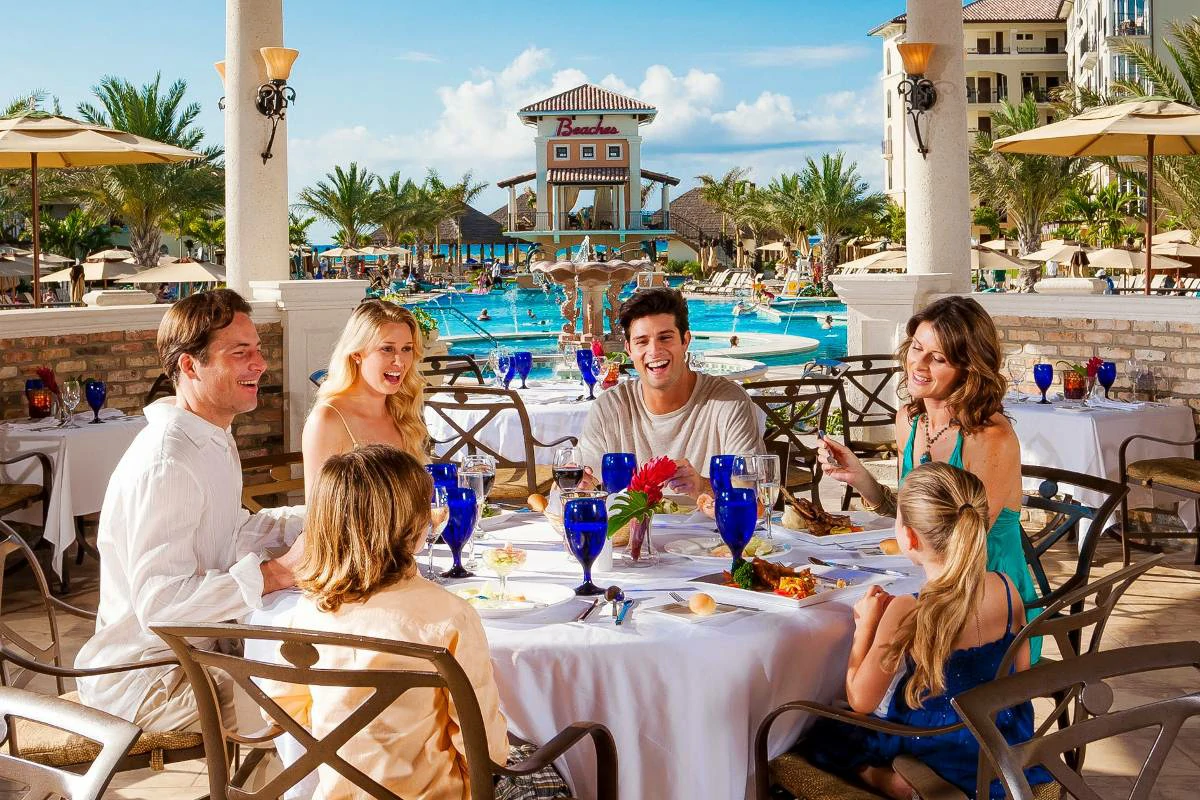
1. Maintaining Individuality and Local Character
The Challenge: One of the key challenges for large hotel chains lies in maintaining a sense of individuality and local character for each property, particularly as they expand into new markets. Travelers increasingly seek authentic experiences that reflect the destination they’re visiting.
The Risk: Overly standardized hotels within a chain can feel generic and lack the unique charm that draws travelers to specific locations. Overemphasis on brand standards might lead to a sense of placelessness.
Addressing the Challenge: Savvy hotel chains are finding ways to balance consistency with local flavor. This could involve incorporating local design elements, offering regional cuisine, partnering with local businesses, or curating activities that connect guests with the destination’s culture and community.
2. Potential for Impersonal Service
The Challenge The sheer scale of operations within large hotel chains can sometimes lead to a perception of impersonal service, where guests feel like a number rather than an individual. This is particularly a risk at large convention hotels or properties focused purely on efficiency.
The Risk Impersonal or automated interactions can diminish the overall guest experience. Travelers often crave connection and personalized attention, which may be more readily available at smaller boutique hotels or independent properties.
Addressing the Challenge: Large hotel chains can combat impersonal service through staff training that emphasizes genuine hospitality, utilizing technology to offer personalized recommendations or preferences, and empowering employees to go above and beyond in creating memorable guest moments.
3. Difficulty in Rapid Adaptation to Market Changes
The Challenge: The complex organizational structures and decision-making processes within large hotel chains can sometimes hinder their ability to react swiftly to changing market trends, emerging technologies, or shifts in consumer behavior.
The Risk: Being slow to adapt could lead to missed opportunities or a loss of competitive edge. Smaller, independent hotels may have more agility in adopting new technologies, experimenting with innovative concepts, or responding to niche traveler preferences.
Addressing the Challenge: Large hotel chains can foster a culture of innovation, encouraging experimentation and calculated risk-taking at a local or brand level. Additionally, investing in market research and data analysis can aid in identifying trends early, allowing for more nimble strategic adjustments.
Vanessa Perez Expert Opinion
“The most successful large hotel chains will be those that find a balance between operational efficiency and delivering experiences that feel personal, authentic, and responsive to the evolving desires of their guests,” notes Vanessa Perez, a hospitality consultant based in Paris.
What Does This Mean for Travelers?

1. More Choices and Price Points
Vast Range of Options: The existence of large, multi-brand hotel chains gives travelers an unparalleled range of choices in terms of accommodation styles, locations, and price points. Whether seeking a luxurious resort, a convenient roadside motel, or an extended-stay suite, there’s likely a large chain-affiliated option to meet diverse needs and budgets.
Catering to Different Markets: By having a portfolio of brands across the price spectrum, large chains can effectively target various traveler segments. This allows them to cater to business travelers seeking a familiar experience, families on vacation looking for amenities and value, or luxury seekers desiring personalized service and upscale accommodations.
Location: Large hotel chains, with their extensive geographical footprints, offer travelers the convenience of finding their preferred brands in major cities, smaller towns, near airports, or along popular travel routes.
2. Predictable Experiences and Standards
Consistency and Reliability: One of the major benefits of staying at a large hotel chain is the predictability of the overall experience. Travelers know that they can expect a certain level of cleanliness, amenities, and service standards, regardless of the specific location of the hotel. This consistency can be particularly reassuring for those traveling to unfamiliar destinations or for business where reliability is important.
The Comfort of the Familiar: For frequent travelers, the ability to easily replicate experiences across different locations and accrue loyalty points within a single system can be a significant advantage offered by global hotel chains with widely-established brands.
Managing Expectations: Knowing what to expect from a hotel stay minimizes uncertainty and can help travelers compare offers from different chains to find the best fit for their preferences.
3. Potential for Great Value Through Loyalty Programs
Rewarding Frequent Stays: Most large hotel chains operate well-developed loyalty programs designed to incentivize repeat guests. These programs offer a range of benefits such as earning points redeemable for free nights, room upgrades, exclusive access to experiences, or partner rewards.
Personalized Perks: As travelers progress through loyalty tiers, they often unlock additional perks like early check-in, late check-out, complimentary breakfast, or other personalized amenities that enhance the value of their stay beyond the basic room rate.
The Power of Points: Accumulated loyalty points can become a significant factor when deciding where to stay, particularly for travelers who frequently use hotels for business or leisure. The potential for earning rewards or leveraging points for “dream” vacations can play a role in influencing travelers’ choices among hotel chains.
Dr. Robert Mandelbaum Expert Opinion
“Large hotel chains offer travelers a sense of reliability and familiarity that can be both comforting and practical,” observes Dr. Robert Mandelbaum, Director of Research Information Services at CBRE Hotels’ Americas Research. “Additionally, for frequent travelers, the opportunity to earn and redeem loyalty points across a global network of properties can offer compelling value.”
Conclusion
The rise of large hotel chains has undeniably transformed the global hospitality landscape. By offering a vast network of properties, consistent standards, diverse brand portfolios, and sophisticated loyalty programs, they have become the go-to choice for a wide array of travelers.
The strengths of these hotel giants lie in:
- Global Reach: Enabling travelers to find familiar accommodations in destinations worldwide.
- Brand Recognition: Building trust through established brands associated with known experiences and service levels.
- Choice and Flexibility: Catering to various traveler needs with diverse price points and accommodation styles.
- Rewards and Value: Offering loyalty programs that incentivize frequent guests and provide opportunities for added benefits.
However, it’s important to remember that large chains aren’t the only solution for every traveler. Those seeking more unique experiences, personalized attention, or desiring to directly support local economies may find smaller independent hotels or boutique properties more appealing.
Ultimately, the best choice comes down to individual priorities and travel styles. Understanding the strengths, weaknesses, and offerings of the largest hotel chains allows travelers to make informed decisions that enhance their overall travel experience.
FAQs
Q: Are large hotel chains always more expensive?
Not necessarily. Large hotel chains encompass a wide range of brands, from budget-friendly to luxury. Additionally, loyalty programs, promotions, and booking in advance, may offer value-driven options even within upscale brands.
Q: Do all hotels within a chain offer the same experience?
While large hotel chains strive for consistency in service and amenities, there can be variations between properties due to location, specific brand standards, age of the hotel, and other factors. Reading online reviews and checking specific hotel websites can reveal details about individual properties.
Q: Is it better to book directly with the hotel chain or use a third-party website?
There are pros and cons to both. Third-party websites sometimes offer discounted rates. However, booking directly with the hotel chain may provide better flexibility with cancellations, access to loyalty benefits, and potential for room upgrades.
Q: How do I make the most of hotel loyalty programs?
Choose a program that aligns with the chains where you frequently stay. Understand how to earn points, tier levels, and the variety of redemption options. Pay attention to ways to accelerate point earning, like using the hotel chain’s co-branded credit card or taking advantage of promotions.







